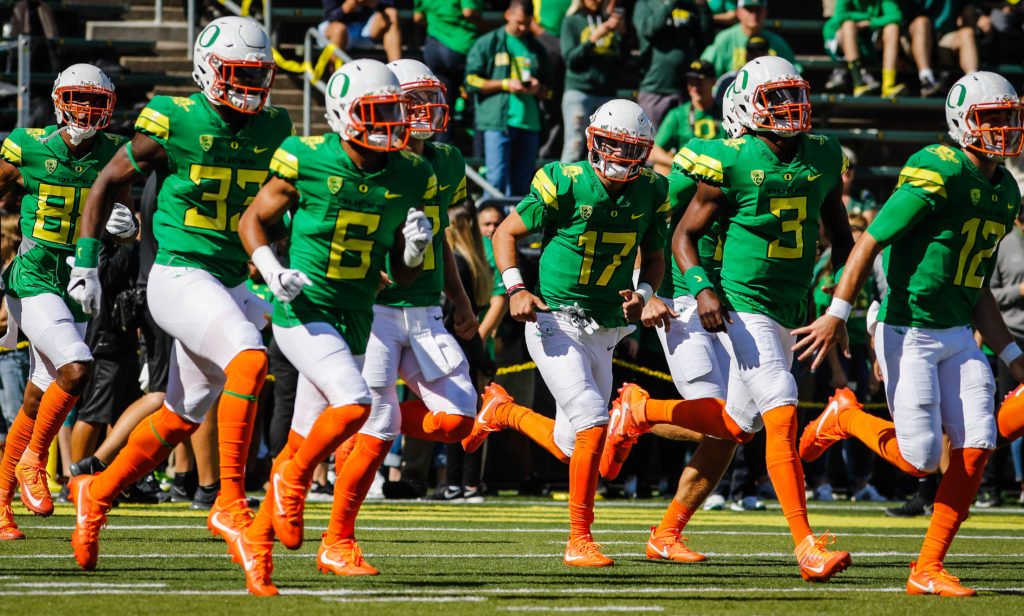
There is so much about 2020 that we don’t yet know. Who will win the election. How many of our fellow citizens will ultimately suffer or die from COVID. The ways in which all of us will be affected long-term by this pandemic and the other events of this year.
One thing that we can probably say with some certainty is that the 2020 college football season will always have an asterisk next to it.
It’s been a noble pursuit to try and play this college football season at all. There were lots of constituencies who fought forcefully for it to happen. Yes, it was about money. No, college sports should not be so interconnected with a university’s finances. Disentangling the two and reaching for a more equitable arrangement for players is a conversation we should have. And players and their families should have agency when it comes to making decisions that impact them directly.
Now that the 2020 college season is underway, there are several reasons why this year should not be thought of as similar in any way to the seasons that have preceded it, and not just because there are no fans present for many games.
Let’s start with the big picture. Not all schools and conferences are even playing football this year. Of those that are, not all are playing the same number of games. The Big Ten conference starts next week, and the Pac-12 weeks after that, whereas conferences like the ACC began in September. Most if not all non-conference games have been eliminated in order to reduce travel.
Players have opted out of the season, either for health reasons or to prepare for the NFL. Games are being cancelled and rescheduled due to virus outbreaks. This weekend’s marquee game, between Florida and LSU, has been put on hold. Perhaps the most notable news this week is that Alabama head coach Nick Saban has tested positive, which puts into question his ability to coach this weekend.
What all of this adds up to is that we can’t evaluate the success or failure of a specific team in the way that we normally would. Teams will end up with different numbers of wins and losses compared to teams in their own conference, potentially. And if a team is playing without their head coach, should we consider the result to have the same weight as it would during a normal season?
We don’t yet know what the postseason will look like. Will there be a CFB Playoff? Will there be bowl games?
The answer to both is probably yes. But, again, it won’t look or feel the same and probably shouldn’t lead to us creating estimations of teams based upon the results. Take for example Ohio State. They should be considered one of the best teams this year, though they have yet to play a game. If they win all their games should they be held in the same regard as, say, an undefeated Clemson who will have played several more games? College football rankings are always speculative, but none more so than this year.
No one will likely pay a greater price for this than the players themselves. Some would have used this season to cement their chances of playing at the next level. Careers will be cut short. Potentials will go unfulfilled. Repercussions will reverberate into the NFL, who will have to assess this year’s draft class in light of this strange season of play.
Let’s hope that twenty years from now, our memories of the traumas of 2020 will have faded. At least put into some understandable perspective. But as for college football, there will likely always be an asterisk, however faint, when people look up the statistics from this year.




